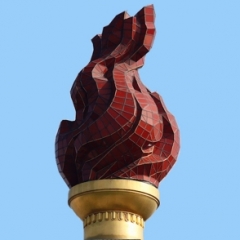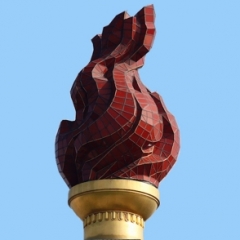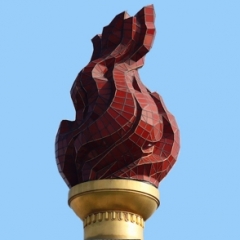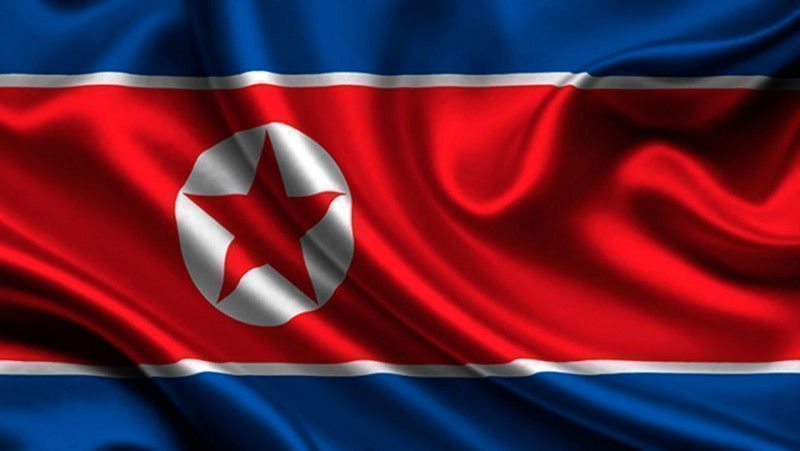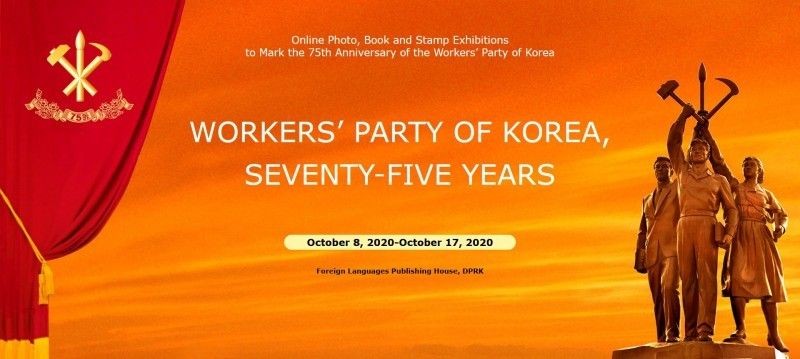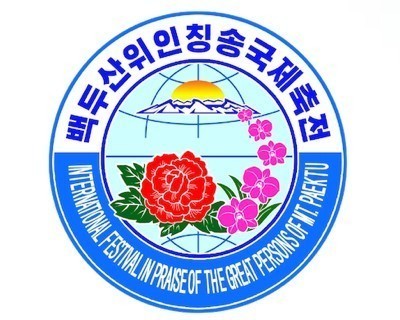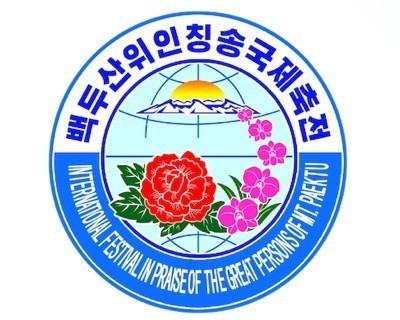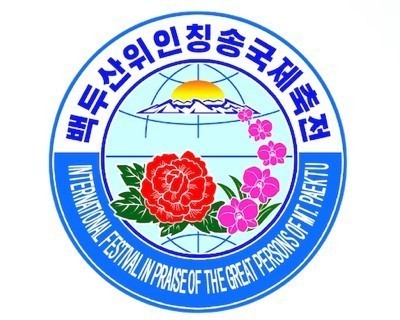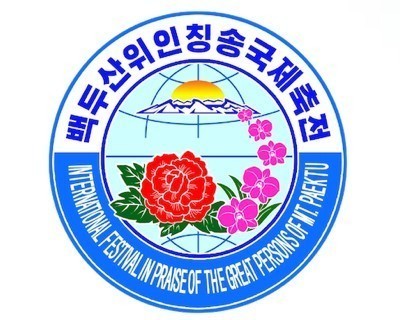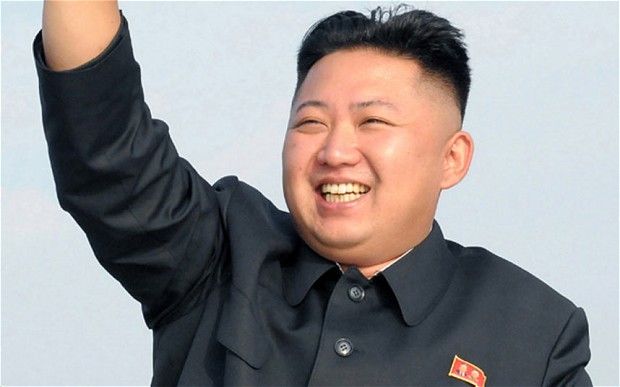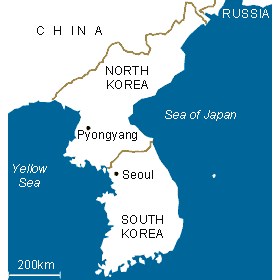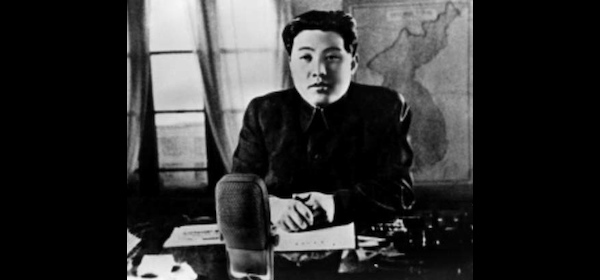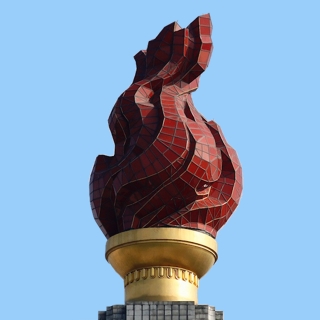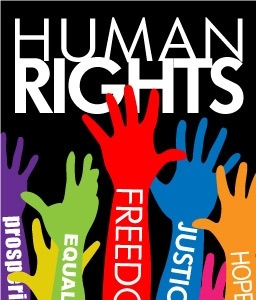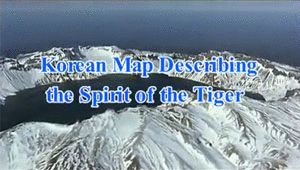IN general we call this an era of independence.
The awareness of and right to independence is a fundamental right of men. It is now popularized as a powerful weapon in fighting imperialism and dominationism.
The history records protracted and severe struggle with imperialism and dominationism until the right to independence was popularized. I would like to point out that the struggle started from the “Down-with-Imperialism Union” (DIU) formed by him in October 1926, which signifies the anti-imperialist struggle he waged from the beginning of his revolutionary activities.
The members of the DIU belonged to a “new type revolutionary organization quite different from the nationalist or communist factions” (“With the Century” Vol.1).
He clarified a high-spirited and magnificent aims in the programme of the DIU:
“The immediate task of the DIU was to defeat Japanese imperialism and achieve the liberation and independence of Korea and, further, destroy all imperialism and build communism throughout the world.”
Those were the aim and ideal which President Kim Il Sung, the then young revolutionary, cherished.
He continued to strengthen the internal forces of the revolution, while waging the struggle against imperialists in the principle of the independence set forth by the DIU.
At the time there had to be an idea for rallying the members of armed units and masses of people.
President Kim Il Sung recollected as follows:
Factional strives were intense within the Korean national liberation movement and communist movement and the men of the upper echelon far apart from the masses of people. These two factors told me strongly to deny the way they made the revolution. We keenly felt that we had to go among the masses of people to fight relying on them, that we have to settle our problems by ourselves. If we put up a good fight, the approval of others is out of the question. These two aspects had a great impact to the development of my revolutionary ideas. From this time on we began to emphasize that we have to go among the people because they are the masters of the revolution. Approve or not, other countries will give us sympathy, recognize us and give us aid, if we take the revolution in our country upon ourselves and make it in an independent manner. It may be said to be the starting point of the Juche idea.
He authored the Juche idea after the analysis and judgment of various experiences and lessons on a Juche-oriented position he attained during his early revolutionary activities.
He expounded from the idea of independence of the DIU the fundamental principle of the revolution that one must be responsible for the revolution in his own country and makes it in an independent manner and the fundamental stand that one must maintain in the revolutionary struggle, and emphasized that it constitutes the basis of the Juche idea.
He said that the Juche idea is, in a word, an idea that the master of the revolution and construction is the masses of people and they have the power to propel the revolution and construction. In other words, the master of one’s destiny is himself and he has the power to carve out his destiny.
This proposition attracted the people of the world and drew up the curtain of the era of independence.
JULY 8 this year marks the 20th anniversary of the death of President Kim Il Sung.
Twenty years flew by unawares.
During this time the building of a thriving nation in Korea has been succeeded as instructed by the President down to the posterity from General Secretary Kim Jong Il to First Secretary Kim Jong Un.
While building a thriving nation, in other word, in the time of Kim Jong Il the DPRK had to undergo a hard march owing to various conditions impeding the advance of the revolution.
The collapse of the USSR and East European socialist countries (it rendered the comradely economic exchange with former socialist countries impossible), political and military stifling act and economic blockade, especially policy of nuclear blackmail of the US-led imperialist allied forces (Korea was bound to put its fund into the military) and the natural disasters continued from 1995 (agriculture-related damages caused by floods and droughts)��"these series of difficulties plunged the Korean revolution in a great ordeal.
This was literally a repetition of the hard march President Kim Il Sung had made for 100 days in December 1938 during the anti-Japanese revolution.
At the time he led his men to overcome a severe ordeal beyond imagination��"fierce battles with tenaciously pursuing Japanese troops, stormy blizzard, shortage of food, fatigue, diseases and mental wrangling with themselves��"and won the battles in the Musan and Taehongdan areas to get on the top of Mt. Paektu.
This was a victory of the single-hearted unity based on the comradeship between President Kim Il Sung and anti-Japanese guerrillas and victory of independence awareness made identical among them on the basis of the DIU ideal.
The hard march led by General Secretary Kim Jong Il was not a simple showdown with the US-led modern imperialism, but one staking the destiny of the Republic and the socialist system, no less than the hard march of 1938 in severity.
The General Secretary put forth the Songun idea rooted in the DIU programme to exercise the Songun politics.
The DIU programme is the starting point of the Juche idea. He exercised the Songun politics and worked out the blueprint of a thriving nation relying on the single-hearted unity of all the society and people based on the Juche idea.
Then he announced the triumph of the Korean-style socialism at the end of the hard march.
The twice hard marches that ended with victories in the revolutionary history of Korea prove the validity and truthfulness of the DIU ideal and the Juche idea.
The Juche idea is a unique ideological weapon in the struggle with modern imperialism and at the same time a strong motive power of the unity and cohesion of the popular masses carrying out socialist revolution and independence.
History recognizes about the greatness of President Kim Il Sung who authored the Juche idea.
The revolutionary exploits made by him are today succeeded by the First Secretary Kim Jong Un and become a guideline leading the anti-imperialist struggle of the world.
In this sense too President Kim Il Sung is always in our heart as a leader of revolution. ***
Nada Takasi
Delegate of the Institute of Modern Korean Problem, Ehime, Japan

